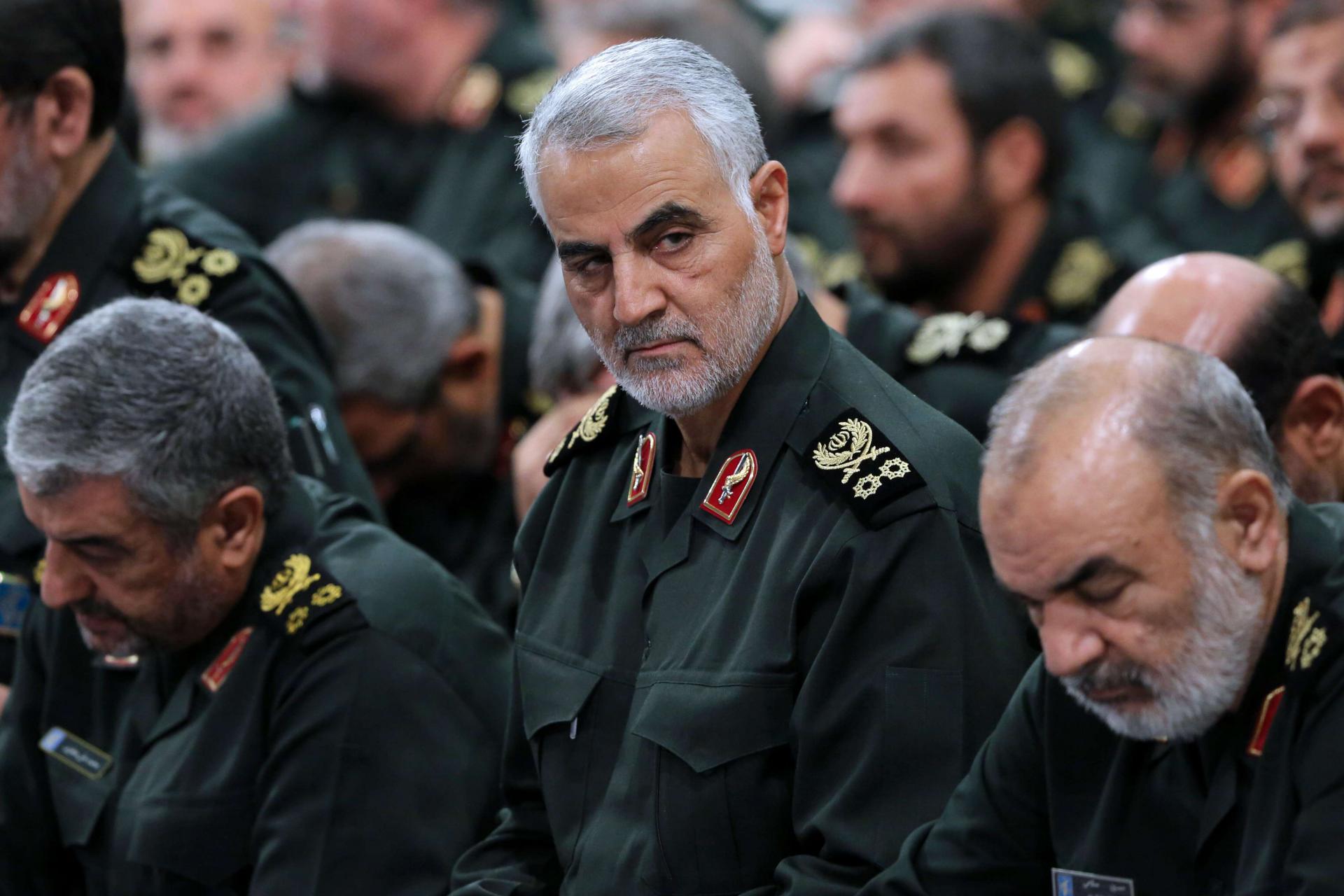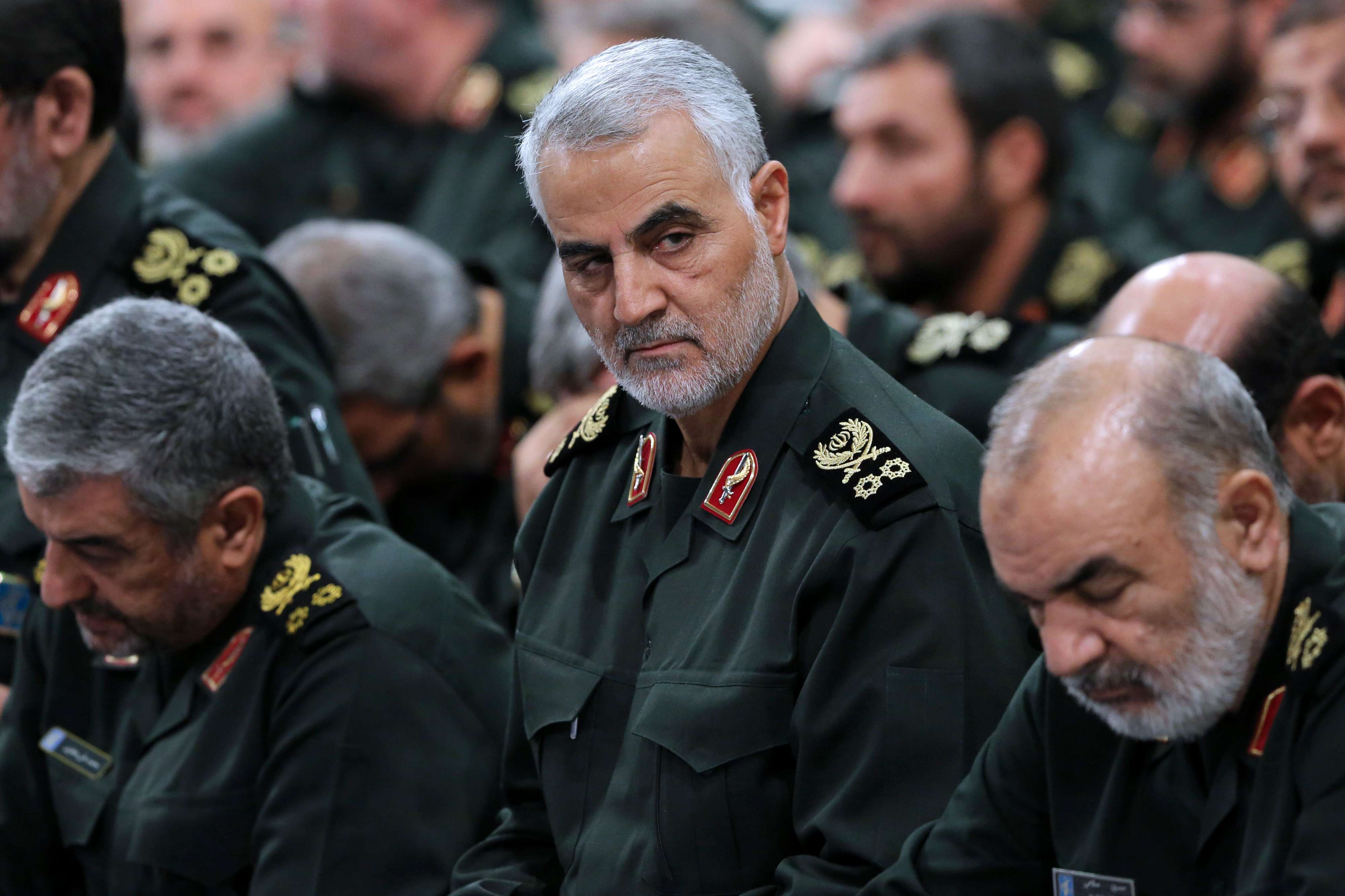New Gulf, US sanctions target Iran-Taliban ties
RIYADH - The US Treasury and allies in the Gulf took aim at Iran's interference in neighbouring countries and its support for the Taliban Tuesday with new sanctions against nine individuals from both countries.
Saudi Arabia also said on Tuesday that it and Bahrain had added Iran's Revolutionary Guard Corps and senior officers of its Quds Force to their lists of people and organisations suspected of involvement in terrorism.
The Saudi state news agency SPA quoted a statement from the security services saying Qassem Soleimani, commander of the Quds Force, and the force's Hamed Abdollahi and Abdul Reza Shahlai were named on the list.
The US Department of the Treasury in 2011 alleged that Soleimani, Abdollahi and Shahlai were linked to a plot to assassinate Saudi Arabia's former ambassador to the United States, Adel Al-Jubeir, and imposed sanctions on them.
Iran at the time dismissed the accusations as false and demanded an apology from the US government.
The SPA also said the Terrorist Financing Targeting Center (TFTC), a US-Gulf initiative to stem finance to militant groups, had designated as terrorist-linked several people associated with the Afghan Taliban, some of whom were Iranians.
The Riyadh-based Terrorist Financing Targeting Center (TFTC) said the sanctions aimed to "expose and disrupt Taliban actors and their Iranian sponsors that seek to undermine the security of the Afghan Government."
The list included two Iranian Revolutionary Guard officials identified as Mohammad Ebrahim Owhadi and Esma'il Razavi.
According to a TFTC statement the two involved in providing training, financial and logistical support to the Taliban.
It said Owhadi arranged a deal in 2017 with a top Taliban official in Aghanistan's Herat Province in which the Revolutionary Guard would provide military and financial support to the Taliban in return for them attacking government forces in Herat.
Razavi provided similar support to other Taliban groups across the Iran-Afghanistan border, the statement said.
Also named were the Taliban's deputy shadow governor for Herat, Abdullah Samad Faroqui; Mohammad Daoud Muzzamil. who holds the same position in Helmand province, Naim Barich, who manages Taliban-Iran relations, and three other senior Taliban officials.
The blacklist also included Abdul Aziz, accused of paying the Taliban for protection for his narcotics trafficking and gemstones businesses.
"Iran's provision of military training, financing, and weapons to the Taliban is yet another example of Tehran's blatant regional meddling and support for terrorism," said US Treasury Secretary Steven Mnuchin.
"The United States and our partners will not tolerate the Iranian regime exploiting Afghanistan to further their destabilizing behavior," he said in the statement.
The office of the Revolutionary Guards and Iran's foreign ministry were not immediately available for comment on Tuesday. The Quds Force is the extraterritorial branch of the Revolutionary Guards.
The sanctions were announced during Terrorist Financing Targeting Center meeting in Riyadh.
Some of those mentioned were already on US and UN sanctions lists.
The Targeting Center was launched in May 2017 during US President Donald Trump's trip to Saudi Arabia. It includes the United States, Saudi Arabia, Bahrain, Kuwait, Oman, Qatar, and the United Arab Emirates.
The Trump administration aims to create a security and political alliance with the Sunni Gulf Arab states to counter Shiite Iran's influence in the region, especially in Syria and Iraq.


